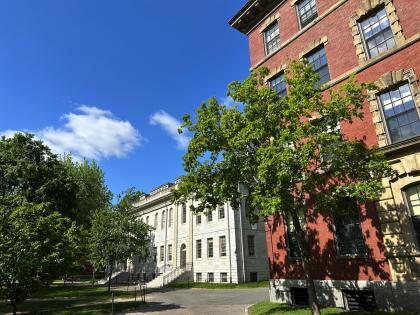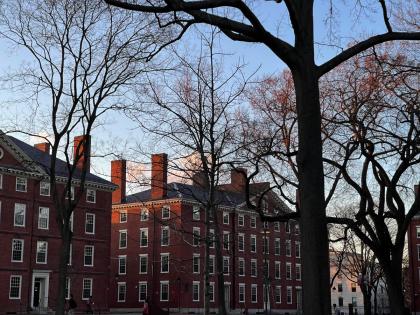One shibboleth of academic life is “shared governance”: involving faculty members in shaping the direction, even the management, of their institutions. In theory, that makes the operation of the academy more consensual—if also messier and less efficient—than other sectors of society, like business.
Princeton president emeritus William G. Bowen and Eugene Tobin examine the concept in their recent Locus of Authority (Princeton). Their subject “is really about leadership, and how it is both constrained and exercised” in the college or university. They note, “Faculty are not generally in a position, nor are they responsible, for providing institution-wide leadership on their own.” But “faculty can either encourage (and facilitiate) the wise exercise of leadership by others or…throw…sand in the wheels.”
At some universities, a faculty senate enables deliberation and voice. Stanford has one; Yale’s arts and sciences faculty recently created one—with 60 percent of members voting in the initial election, a participation rate many times that at regular faculty meetings. (That would be true in Cambridge, too.) But in a centralizing era of investing in information systems, complying with federal regulations, and mounting massive capital campaigns, no such legislature has advanced at Harvard—not even during the governance crisis of the late 1960s and early 1970s, when a senate was discussed. Today, administrators probably wouldn’t welcome the aggravation; professors probably don’t want the extra work.
But a model for valuable, if less formal, consultation exists. MIT’s recent task force on its educational future engaged the whole community in work that has accelerated online learning, laid the foundation for involvement in K-12 education, and provided the architecture for fundraising. A “conversation on climate change committee” similarly reached constituents across campus; its suggestions may not all advance, but they broaden debate and understanding. Even when lobbying Congress for more funds to combat an “innovation deficit,” MIT put its professors’ expertise forward.
All that is shared governance, based on MITs most valuable coin, its intellectual capital. The innovation could very productively travel upriver.
* * *
Zara Zhang ’17, our Daniel Steiner Undergraduate Editorial Fellow this summer, contributed deeply reported, well-written articles online, on subjects ranging from the arts and humanities to urban design. Enjoy her work at the redesigned harvardmagazine.com, and in this issue on pages 7 and8. We were lucky to have her as a colleague, and thank her for her outstanding work on readers’ behalf.
John S. Rosenberg, Editor







